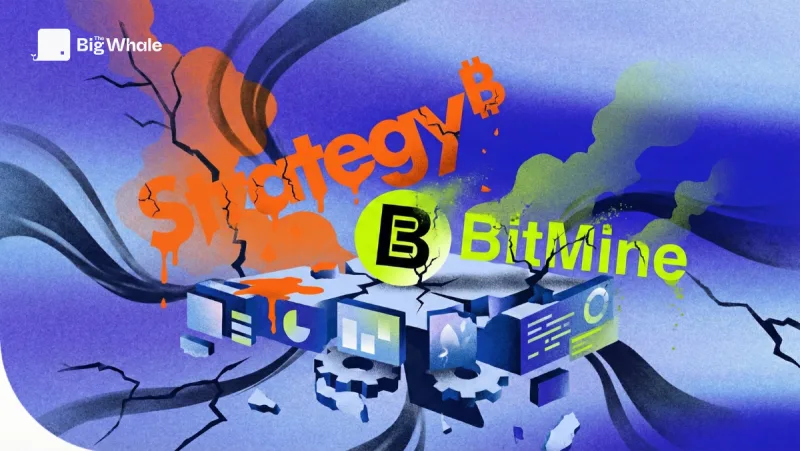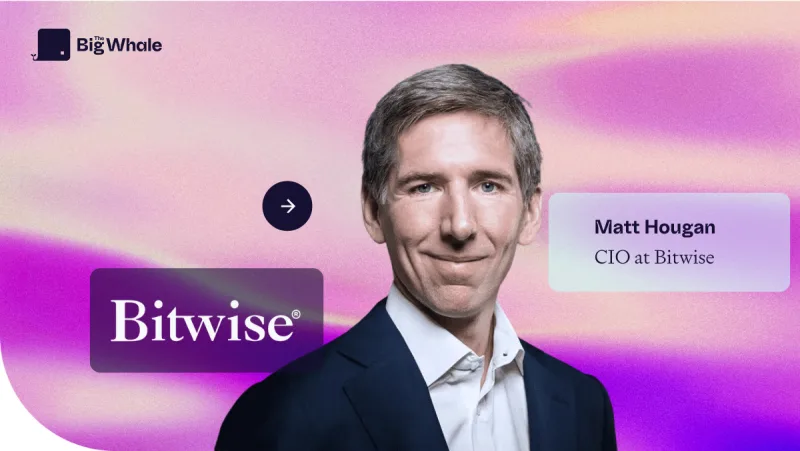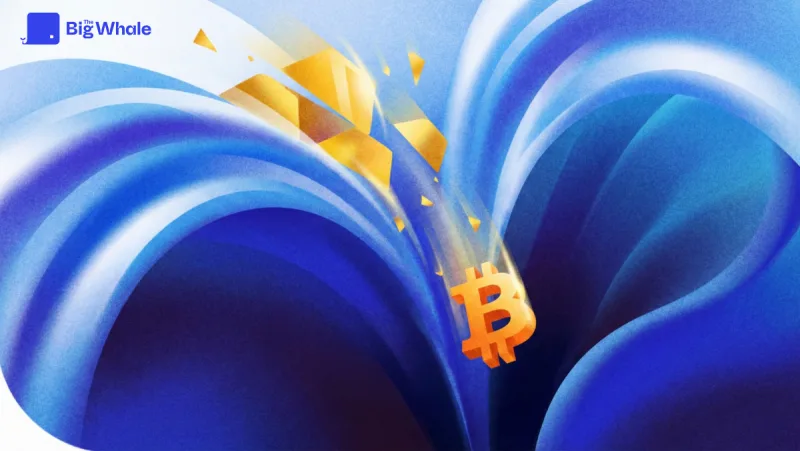TBW - Eliézer Ndinga (21Shares): "Family offices have never been so active in cryptos"
"Family offices have never been so active in cryptos"

The Big Whale: In the space of a few weeks, everything seems to have unblocked for the crypto industry. Is this just related to Trump's election?
Trump's election obviously played a part. There was a big question about what his possible return would cause and we can see that the effect is positive. The sector is optimistic about having a more neutral policy.
But beyond Trump's election, there was above all the arrival of the bitcoin Spot ETFs. For me, this is the most important moment for the industry. We're talking about the best launch ever for an ETF. Today, we have more than $100 billion in assets under management, which is colossal.
Is the whole sector benefiting?
It's clear that things are simpler for bitcoin, which is clearly seen as a commodity; for the other crypto-assets, known as altcoins, things are more complex. I would perhaps put Ethereum aside.
We can see that ether is also likely to be seen as a commodity. On the other hand, for the others, there is still the risk of being qualified as equities (securities). Even BNY Mellon, New York's largest bank, limits its custody to Bitcoin and Ethereum ETFs.
Things could change, however, with the new Trump administration, which announced during the campaign that they would like to change the framework.
Are you optimistic about the future of the sector?
Yes, even more than ever. At the risk of surprising you, I think crypto regulation is much clearer today than it has ever been. Things are changing in Asia, in Europe there's MiCA and in the United States, Trump's election will help clarify things.
Really, the subject is market convergence, particularly via regulation.
You live in New York. How do you see the crypto market in the United States evolving?
Cryptos have gone from a fairly sectarian niche market to a more mainstream market. We've seen the arrival of traditional finance with players like BlackRock and Franklin Templeton. It's a huge change.
During a presentation at the Harvard Club a few weeks ago, 60% of the family offices present had already invested in cryptos, compared with less than 1% in 2015-2017. The arrival of players like BlackRock and Fidelity has really legitimised this asset class.
Which major players are you working with today?
We are in direct competition with BlackRock and Fidelity, but we are our own asset manager. For bitcoin, we have a partnership with Cathie Wood's company Ark Invest. For ether, we operate independently. We also work with distribution platforms such as Robinhood and Schwab.
Who are your main investors?
Hedge funds, family offices, high net worth individuals and private banks. Distribution is via brokers and private banks, mainly in Switzerland, Germany and the Netherlands. In the UK, we are limited to Bitcoin and Ethereum for professional investors.
Hasn't the arrival of BlackRock disrupted the market?
ETPs are a question of scale. BlackRock has an advantage with its massive distribution over other asset classes. When they suggest to their clients that they invest 1-5% of their wealth or capital in crypto, it's natural because trust is already established. However, there is still room for crypto specialists like us, who offer research, education and real-time data.
21Shares first launched in Europe. What is your best-performing product in Europe?
It's our Solana ETP, with over $1 billion in assets under management. We launched it in 2021, and it was the first on the market. It now represents 1.5% of Sol's total offering on the market!
Has New York become the crypto capital of the world as some people say?
I'd say it's more nuanced than that. Regulation in New York is still very strict, particularly with BitLicense which is incredibly expensive.
I think New York is going to become the capital of tokenisation thanks to Wall Street and its banks. On the other hand, I don't think New York will play a role in anything to do with crypto tech (social media, podcasts, etc.).
A lot of people in Europe complain about regulation and how expensive it is, but it's even more expensive in the US, and particularly in New York. Even now, many projects avoid the US so as not to be accused of marketing to the American market.
Do you have any examples?
There are plenty! The Polymarket prediction site is inaccessible to US citizens and residents (it is also now banned in France, as we revealed). On the Exchanges side, you still have restrictions: Kraken offers different services between its American and French versions.
In New York, only Coinbase and Gemini are really present. Staking is also banned in several states, and even if Trump is going to shake things up with some appointments like to the SEC, not everything is going to change overnight.



